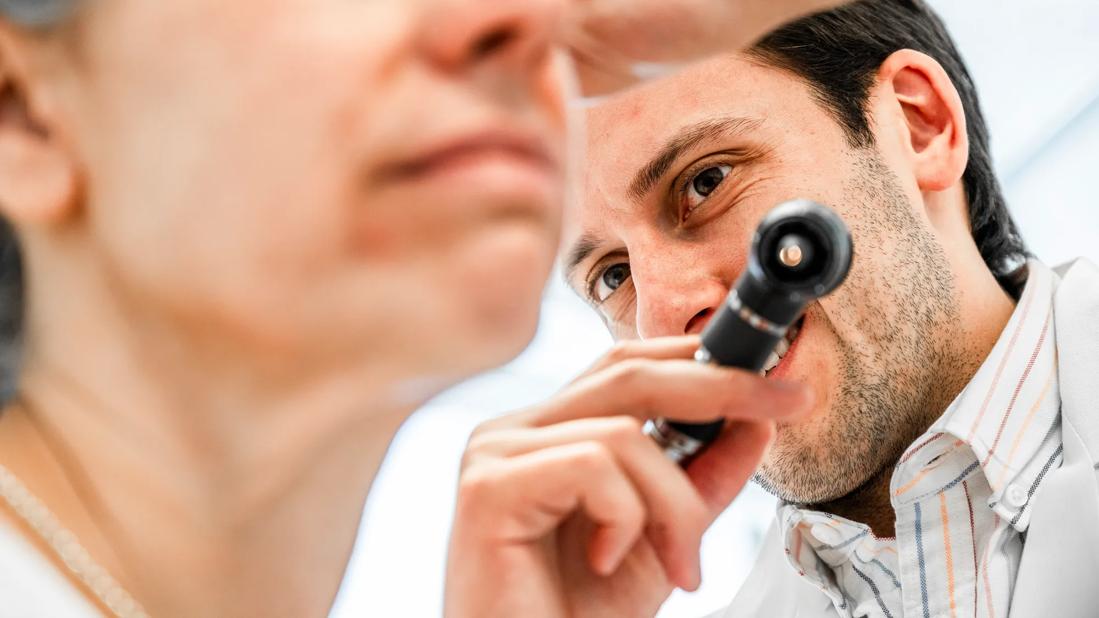Center for Connected Care offers training

Image content: This image is available to view online.
View image online (https://assets.clevelandclinic.org/transform/9ed277f6-1ae5-44e8-9597-a2c26497c0b0/GER_4894908_05-16-24_199_MLC)
Geriatric visit
Across the country there is a growing need for home-based primary care professionals. As our nation ages and population health efforts advance, post-hospital care that includes home care is becoming essential to the care continuum. Studies have shown that home-based primary care improves outcomes and patient satisfaction while reducing costs.
Advertisement
Cleveland Clinic is a non-profit academic medical center. Advertising on our site helps support our mission. We do not endorse non-Cleveland Clinic products or services. Policy
With a decade of experience in providing some form of home-based care, Cleveland Clinic was among eight healthcare organizations in the nation to be named a Center of Excellence (COE) in 2017 by the Home Centered Care Institute (HCCI). Last fall, these leading organizations came together to develop a home-based primary care education curriculum for a national audience.
In December 2017, that new curriculum was put to the test when Cleveland Clinic’s Center for Connected Care launched its inaugural two-day training conference called “Essential Elements of Home-Based Primary Care.” The training focused on geriatric principles, covering both clinical and practice management topics. Participants included physicians, nurse practitioners and healthcare administrators.
“The curriculum is unlike anything I’ve experienced at a conference before,” says William Zafirau, MD, Director of Cleveland Clinic’s Center for Connected Care. “It is predominantly case based, inviting participants to work through real patient cases in small groups. Colleagues from practices from across the country shared information and learned from our facilitators.”
The curriculum is intended for healthcare providers that are just starting a house call program, and it includes an ongoing year-long mentorship relationship. Participants in the program were especially interested in learning more about:
Advertisement
“Other questions revolved around logistics,” Dr. Zafirau says. “They want to know how healthcare can be provided in an efficient manner and how to pay for it."
“We are excited to offer this program,” says trainer Duane Kirksey, MD, of Cleveland Clinic’s Center for Connected Care. “We want to help people starting off in home-based care to avoid the pitfalls that many of us in the field of have experienced.” Dr. Kirksey says doing house calls allows him to get to know his patients better and develop long-term relationships that can have a very positive impact on patient outcomes.
Dr. Zafirau notes that Cleveland Clinic is working with HCCI and the COE network of healthcare organizations to enhance the curriculum. The Center is finalizing a practice excellence partner contract with HCCI to become one of four sites in the country to do clinical training in addition to classroom training, whereby participants will shadow home-care providers using a defined curriculum.
“We are thrilled to be working with a national leader like Cleveland Clinic,” says HCCI CEO Thomas Cornwell. “With their remarkable home-based primary care program, we can have a greater impact on educating providers nationwide.”
Cleveland Clinic will offer its second home-based primary care training event in early June. For the best experience, the goal is to keep the attendance to around 40 participants per session.
To accommodate providers, Dr. Zafirau says, “We are also adding some online content that doesn’t require being here in person. We want to provide ongoing support in a format that healthcare providers want and need.”
Advertisement
Dr. Zafirau notes that eventually home care services may involve some type of certification, and that at some point payers may look at the number of trained home-based care providers as a quality measure.
“One of the biggest barriers of access to home-based care for patients today is having enough providers who feel comfortable doing house calls,” says Dr. Zafirau. “The curriculum we are offering is designed to change this.”
Cleveland Clinic’s Center for Connected Care provides a set of clinical programs to help patients with their post-hospital needs. The Center, which includes more than 500 caregivers providing daily care to approximately 3,500 patients, brings together all of Cleveland Clinic’s home and transitional care services, such as: home care, hospice, mobile primary-care physician group practice, home infusion pharmacy, home respiratory therapy, and facility-based (SNF and LTAC) physician group practice.
The Home Centered Care Institute (HCCI), founded in 2012, is a collaborative nonprofit organization that is advancing home-based primary care nationwide to ensure that medically complex and homebound patients have access to high-quality primary care in their home.
Advertisement
Advertisement
Initiatives focus on the physical and emotional well-being of geriatric patients and their caregivers
Researchers explore the mental and physical benefits of social prescribing
Multidisciplinary approach helps address clinical and psychosocial challenges in geriatric care
Effective screening, advanced treatments can help preserve quality of life
Study suggests inconsistencies in the emergency department evaluation of geriatric patients
Auditory hallucinations lead to unusual diagnosis
How providers can help prevent and address this under-reported form of abuse
How providers can help older adults protect their assets and personal agency